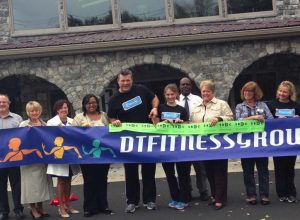No, I’m not referring to the credit/banking situation. I’m referring to a very different outlook–an outlook that considers investing in local food systems.
On April 28th, the White Dog Cafe in Philadelphia is sponsoring a Breakfast Talk on Slow Money, from 8:00 – 9:30 a.m. The talk, entitled “Slow Money: Investing as if Food, Farms and Fertility Mattered,” will be given by Woody Tasch, author of “Inquiries into the Nature of Slow Money.”
Woody Tasch is chairman and president of Slow Money, a 501c3 organization formed in 2008 to focus the investment of capital to small food enterprises and to support sustainable agriculture.
In the typical world of investments, the investors want fast returns. Can investors appreciate small scale, aesthetically pleasing and healthfully balanced investments, which do not necessarily provide fast returns? Woody Tasch is out to prove they can, particulary among the socially-conscious investor set.
With a grant from the Kellogg Foundation, Woody is looking to establish a Slow Money Fund. This fund would be used to invest in early-stage sustainable food enterprises. A venture capitalist, Tasch sites the difference between traditional investments and Slow Money investments as the difference between a 20% profit return in 10-12 years on typical investments, to a profit return of 5-14% in possibly 15 years going the Slow Money route. (For more information on sustainable investing, click here.)
Tod Murphy started Farmers Diner in 1999 in Barre, Vermont. He spends 65 cents of every food dollar with farmers who work and live within a 70-mile radius of his diner. Tod’s goal is a national franchise of diners following this model. A Johnson School of Business, Cornell University Social Venture study in 2001/2002, calculated significant social returns from this type of diner establishment as follows: “Every 1,000,000 in annual sales at a diner translates into 350 acres of farmland in production, 15 farmers with gross sales of $50,000, 13 new farm jobs, and $1,200,000 in land conservations costs saved. Local production and shortened delivery routes saves at least 10 tons of carbon dioxide emissions annually.” (For more information on Farmers Diner, click here.)
If you have the chance to attend the Breakfast Talk, let us know what you thought in the comments below. Here’s more information on the event: $15, includes a buffet breakfast with farm fresh eggs, French toast, granola, and more, tax, gratuity and program. Reservations required: 215-386-9224.


